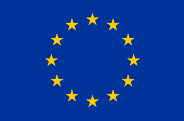
Safe non-food consumer Products in the EU and China
The European Single Market refers to the European Union (EU) as one territory without any internal borders. The Single Market has a big impact on the everyday lives of consumers in all EU Member States by providing greater access to goods and services as well as increased protections under EU consumer law. The EU has put in place a robust set of policies and rules which seek to ensure a very high level of protection and strong rights for consumers.
EU consumer laws provide consumers with the following key rights:
Consumer rights
The Consumer Rights Directive gives consumers the same strong rights across the EU. It aligns and harmonises national consumer rules, for example on the information consumers need to be given before they purchase goods, services or digital content, and on their right to cancel online purchases, wherever they shop in the EU.
A distance contract is where the consumer buys a product or service online, over the phone, or by mail order. Consumers have additional rights including:
Other key consumer rights directives include:
National authorities in individual countries are responsible for the enforcement of EU consumer protection laws in order to protect consumers when shopping across national borders. Consumer Protection Cooperation Regulation (EU) 2017/2394 provides for a network of competent public enforcers (CPC network) to tackle these issues in a coordinated manner. Such national authorities have strong powers to detect irregularities and take speedy action against rogue traders. If national consumer authorities work together at EU level, they save taxpayers’ money. The cooperation is applicable to consumer rules covering various areas such as unfair commercial practices, e-commerce, geo-blocking, package holidays, online selling, and passenger rights. An overview of recent successful CPC coordinated actions is available here. These actions are key to protect the collective interests of EU consumers.
Empowering consumers and effectively protecting their safety and economic interests have become essential goals of EU policy. Consumers are able to seek direct support from either public bodies or non- governmental organisations also known as NGOs within individual member states. The European Consumer Centres Network (ECC-Net) is a network of ECCs found in all EU Member States, Iceland and Norway which was set up over 15 years ago to educate EU consumers about their rights in the single market, and to help them resolve cross-border disputes. The Network seeks reciprocal arrangements with third countries to assist EU consumers when travelling in third countries. In case the ECC does not manage to resolve the dispute, consumers may resort to Alternative Dispute Resolution, the European Payment Order or the European Small Claims Procedure, if relevant.
The Alternative Dispute Resolution Directive has been transposed by all EU Member States and is practical for low-value consumer disputes. It is a simple, fast and affordable out-of-court mechanism which provides an amicable solution for domestic and cross-border business to consumer disputes.
Learn more about consumer law in the EU
Learn more about the Consumer Rights Directive
Learn more about the Alternative Dispute Resolution Directive
Learn more about the rules affecting consumer sales and guarantees:
Directive (EU) 2019/771 – concerning contracts for the sale of goods.
Directive (EU) 2019/770 – concerning contracts for the supply of digital content and digital services.
You can learn more about this subject in the case studies section.

This website was created and maintained with the financial support of the European Union. Its contents are the sole responsibility of SPEAC project and do not necessarily reflect the views of the European Union.